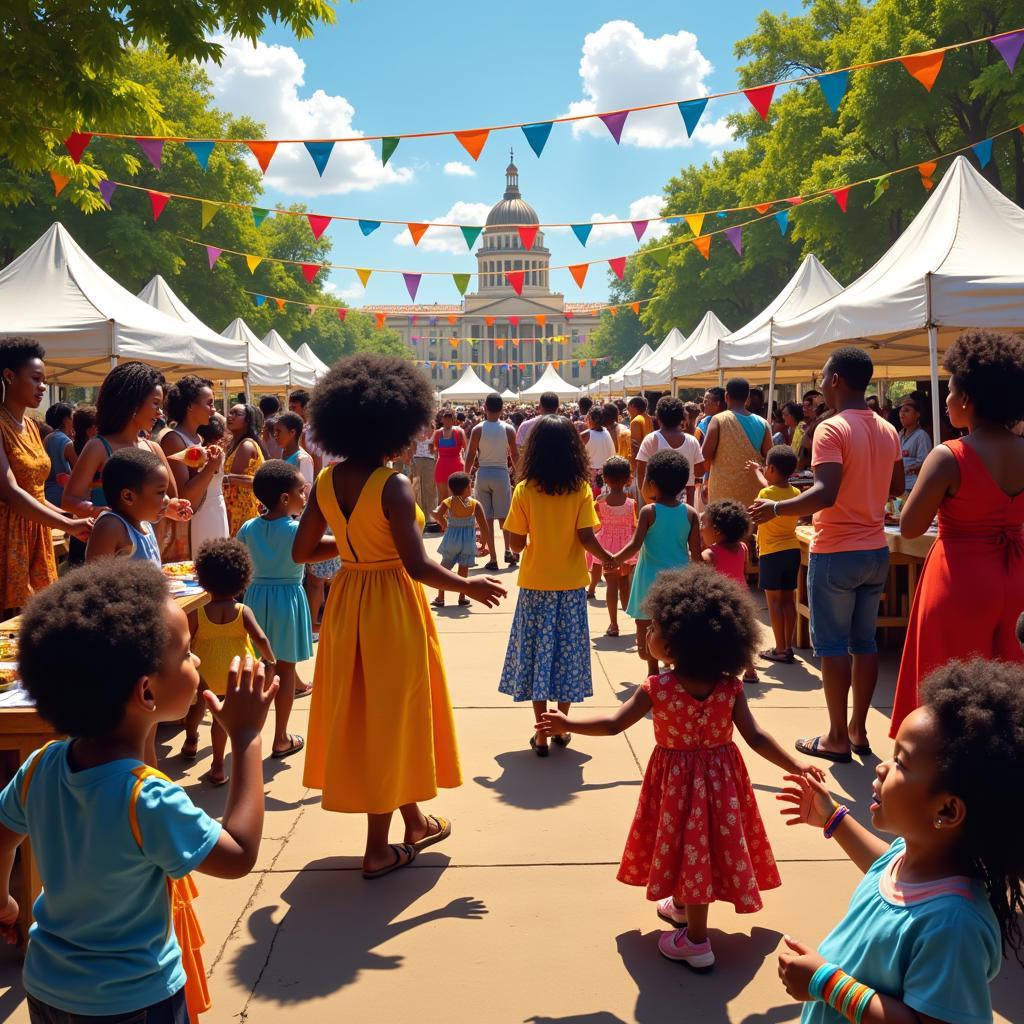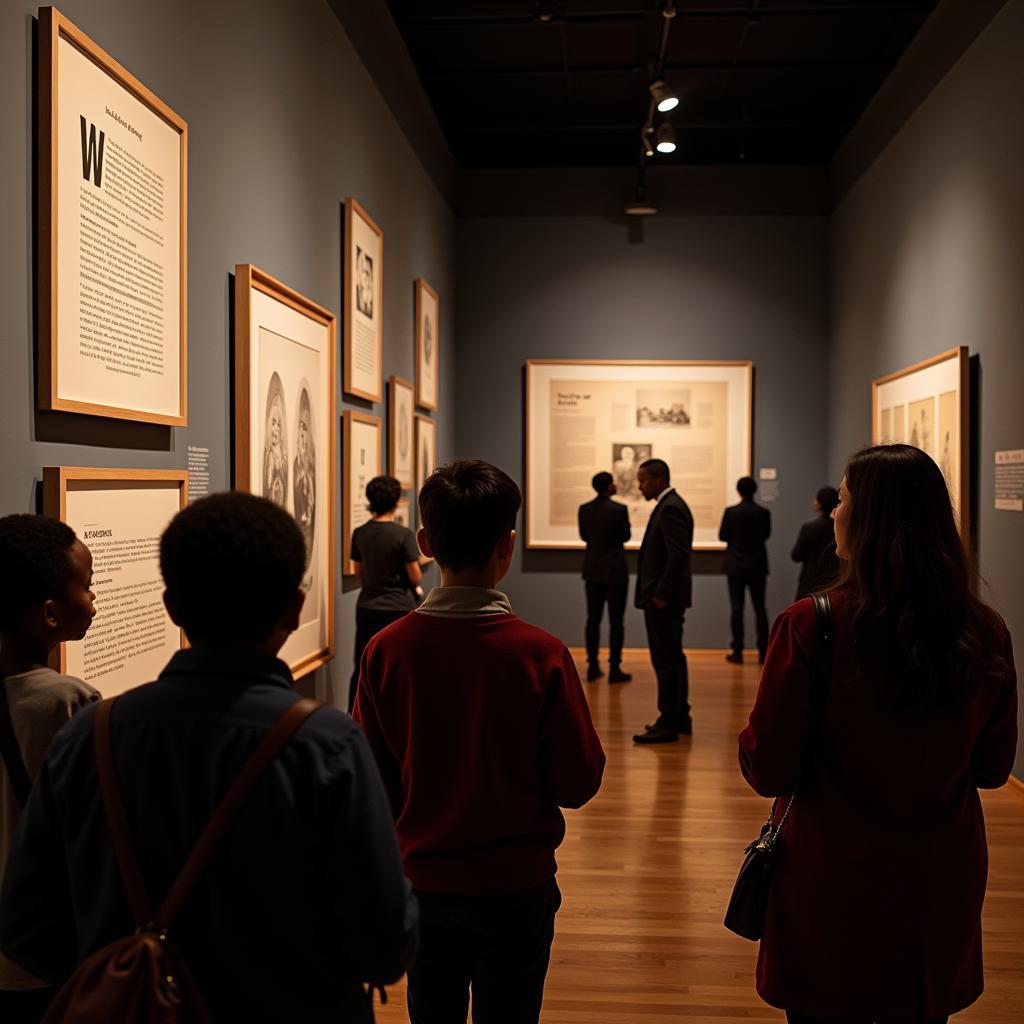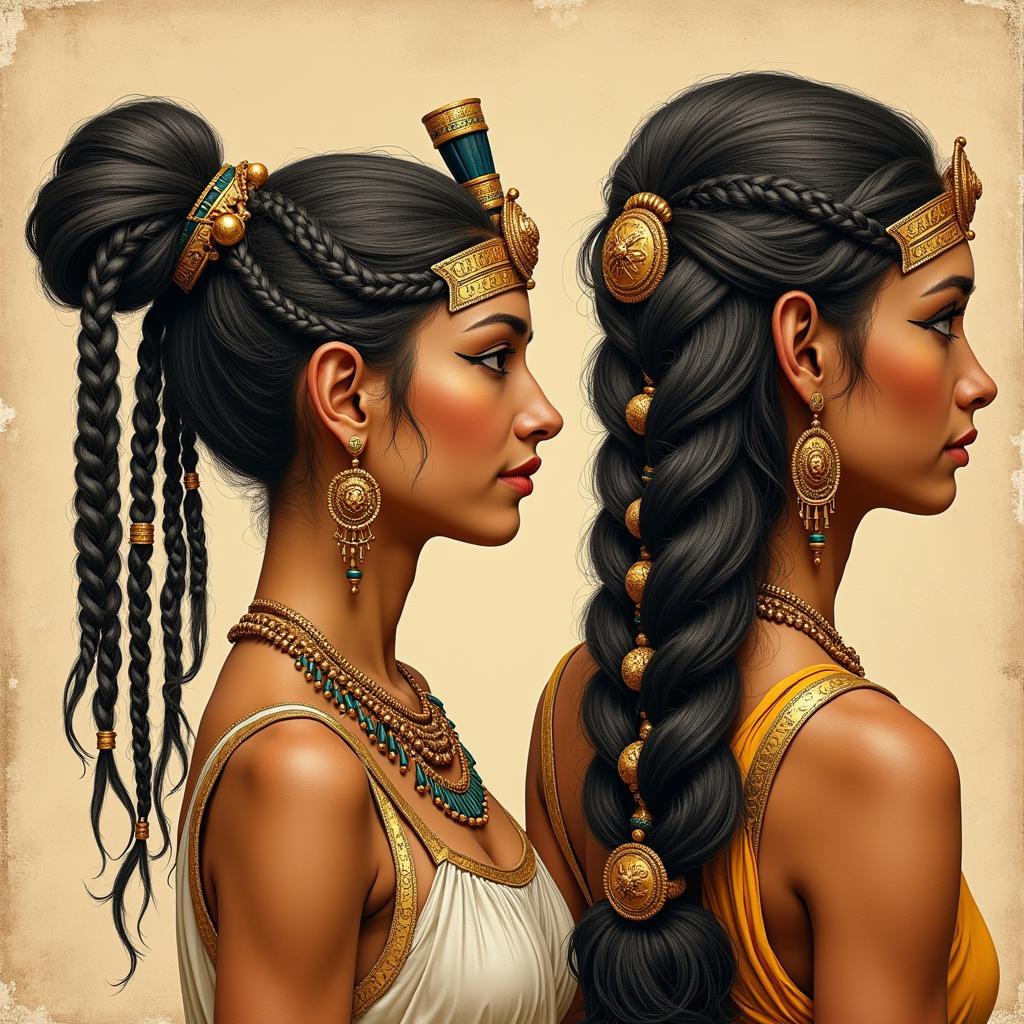African American Events Calendar: Celebrating Culture and History Year-Round
The African American experience is rich with triumphs, struggles, and a vibrant cultural tapestry woven through centuries. An “African American Events Calendar” serves as a valuable tool to acknowledge, celebrate, and educate ourselves about the countless contributions of African Americans throughout history and in contemporary society.
 African American Festival Celebration
African American Festival Celebration
Why an African American Events Calendar Matters
Beyond commemorating key historical moments, an African American events calendar shines a light on the diverse talents, perspectives, and achievements within the community. It serves as a reminder of the ongoing fight for equality and justice, while also providing a platform for education, reflection, and cultural exchange.
 African American History Museum Exhibit
African American History Museum Exhibit
Key Dates and Celebrations
Throughout the year, numerous events provide opportunities to engage with African American culture and history:
-
Black History Month (February): This month-long celebration recognizes the achievements of African Americans and their central role in U.S. history. From educational programs to artistic performances, Black History Month offers a chance to delve deeper into the African American narrative.
-
Juneteenth (June 19th): Commemorating the emancipation of enslaved African Americans in the United States, Juneteenth is a time for joyous celebration and reflection on the ongoing journey toward freedom and equality.
-
Kwanzaa (December 26th – January 1st): This seven-day festival honors African heritage in African American culture, emphasizing community, self-determination, and cultural unity.
Beyond the Well-Known
While these events hold significant importance, countless other local and national events occur throughout the year. Consider exploring:
- Film festivals: Showcasing the work of African American filmmakers and actors, these festivals celebrate the power of storytelling and provide a platform for diverse voices.
- Music festivals: From jazz and blues to hip-hop and R&B, music festivals dedicated to African American genres offer an immersive cultural experience.
- Literary festivals: Celebrating the works of African American authors, these events provide insights into the richness and diversity of African American literature.
Finding Events Near You
Discovering African American events tailored to your interests is easier than ever:
- Online calendars: Websites and organizations dedicated to promoting African American culture often feature comprehensive event listings.
- Local community centers: Check with community centers, libraries, and cultural institutions in your area for event postings and announcements.
- Social media: Follow organizations and individuals involved in promoting African American events for updates and announcements.
Celebrating Heritage, Embracing Diversity
An African American events calendar is more than just a list of dates—it’s an invitation to explore, learn, and connect with the richness of African American culture. By participating in these events, we not only honor the past but also contribute to a more inclusive and equitable future.
Remember, celebrating cultural diversity enriches our lives and broadens our understanding of the world around us. So, take the opportunity to engage with the vibrant tapestry of African American events and continue learning throughout the year.
Frequently Asked Questions
1. How can I find local African American events in my area?
Several resources can help you find local events:
- Online event calendars: Websites like Eventbrite, Meetup, and local news outlets often have dedicated sections for cultural events.
- Community centers and libraries: These institutions frequently host or advertise local events.
- Social media: Following local organizations or groups related to African American culture can provide updates on upcoming events.
2. What are some ways to actively participate in Black History Month beyond attending events?
- Educate yourself: Read books, watch documentaries, and listen to podcasts about African American history and culture.
- Support Black-owned businesses: Make a conscious effort to patronize businesses owned and operated by African Americans.
- Engage in conversations: Talk to family and friends about the importance of Black history and the ongoing fight for racial justice.
3. What are some traditional foods associated with Kwanzaa?
Kwanzaa celebrations often feature traditional African and African American dishes, including:
- Gumbo: A flavorful stew originating from Louisiana, typically made with seafood, meat, and vegetables.
- Black-eyed peas and rice: A Southern staple believed to bring good luck in the new year.
- Cornbread: A savory bread often served alongside Southern cuisine.
4. What is the significance of Juneteenth becoming a national holiday in the United States?
Juneteenth’s recognition as a national holiday marks a significant step in acknowledging the historical trauma of slavery and celebrating the emancipation of African Americans. It serves as a reminder of the importance of continued progress towards racial equality and justice.
5. How can I be respectful when attending events from a culture different from my own?
- Do your research: Learn about the customs and traditions associated with the event you are attending.
- Be mindful of your behavior: Avoid making assumptions or generalizations about the culture being celebrated.
- Ask questions respectfully: If you are unsure about something, don’t hesitate to ask for clarification.
Looking for more information about African culture? Check out our articles on African guy png and African goat farming in India.
For further assistance, feel free to contact us!
Phone Number: +255768904061
Email: kaka.mag@gmail.com
Address: Mbarali DC Mawindi, Kangaga, Tanzania
Our dedicated customer support team is available 24/7 to assist you.

